KEN BALDAUF
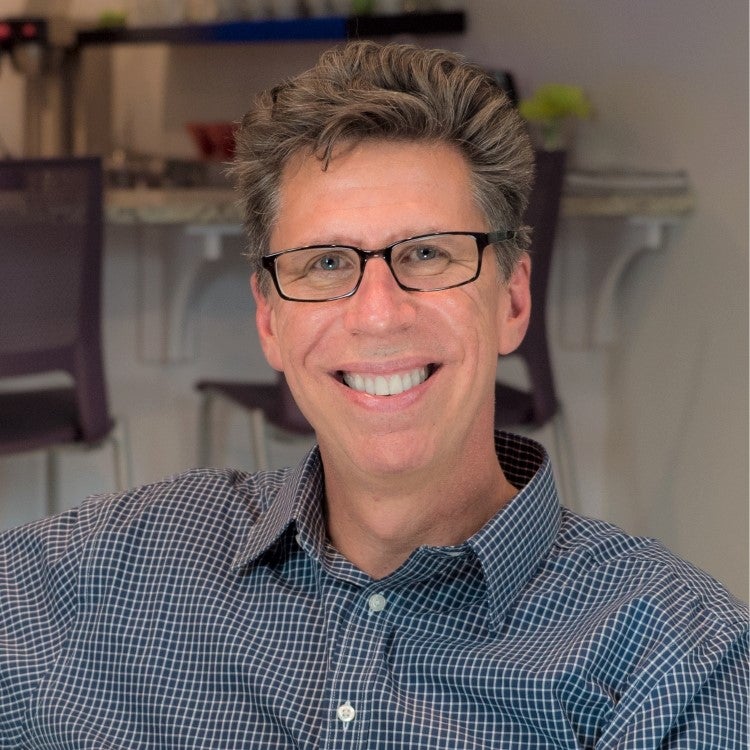
ENT 3607 INNOVATION BY DESIGN
This course teaches methods common to human-centered innovation frameworks such as Design Thinking: empathizing with people in given situations, framing and reframing problems, ideating, prototyping and testing solutions. Students will learn the process of developing products, services, systems and other solutions from the initial discovery of needs, to presenting a tested solution ready for deployment. This course features learning by doing with the vast majority of class time dedicated to collaborative exploration, supported by inspirational case studies, insightful video lessons from thought-leaders in the field, and abundant online resources.
[Requirements Satisfied: General Education Elective (no area), Scholarship in Practice.]
Ken Baldauf is the Founding Director of Florida State University’s Innovation Hub, where students from all disciplines work together, utilizing Design Thinking with emerging technologies, to confront the demanding and complex problems of our day. After over 25 years as an FSU faculty member with a background in music and computer science, Ken has pivoted from machine to human, now fostering curiosity, creativity, compassion, and innovation across the disciplines. Through his Innovation by Design class, and through a wide variety of workshops, design sprints, and boot camps, Ken and his team teach and facilitate Design Thinking sessions that win hundreds of new enthusiasts each year. Ken has authored several textbooks, collaborated with Cengage Learning Publishing to create an online learning framework, has presented at educational conferences across the country, and consults with businesses and organizations in order to increase their creative and innovative potential.
KATHLEEN BURNETT
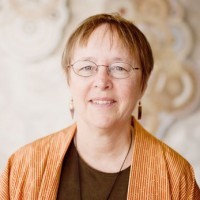
Many diverse ethical challenges face us in the global information age. This course identifies past, present and future information ethics challenges and encourages students to develop their own standpoints from which to address them. The primary purpose of this course is to provide students with the knowledge, skills and attitudes required to make informed ethical decisions about information production, management and use. Students explore and apply a wide range of ethical theories to examine critical information ethics issues raised by recent advances in information and communication technology.
[Requirements satisfied: E-Series, Ethics, and State-Mandated Writing (W)]
Dr. Kathy Burnett is F. William Summers Professor and Director at the Florida State University School of Information, where she has also served as Associate Dean (1997-2004) and Director (2012-2016). She received a BA in German Literature with a minor in Philosophy from the University of California, San Diego, and Master’s and PhD degrees in Library & Information Studies from the University of California at Berkeley. Kathy currently teaches courses in information ethics, information education, and digital storytelling. Her other interests include exploring (and photographing) the world, hiking, reading, and glass arts. Three of her glass & copper enamel pieces were included in exhibitions at the Gadsden Art Center and the Florida State University Art Museum in 2018.
To learn more about Dr. Burnett, visit the FSU School of Information's website: https://directory.cci.fsu.edu/kathleen-burnett/.
CHRIS COUTTS
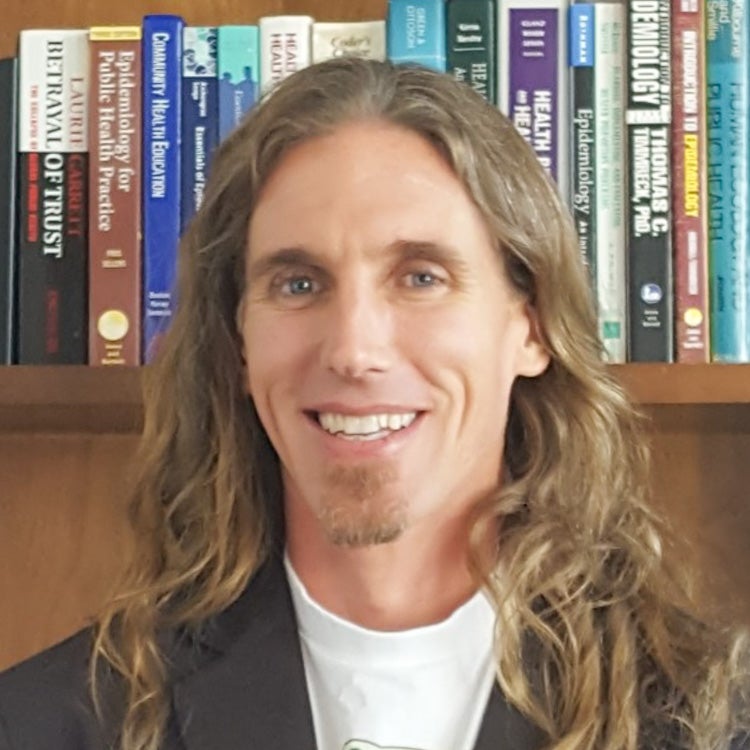
URP 3527 GREEN GLOBAL HEALTH
In this course we explore how nature conservation is necessary for the continuation of life on earth with particular attention on the myriad ways that the natural environment and systems support human health, livelihoods, and wellbeing. We will investigate the numerous ecological theories of health and the evidence-based mechanisms by which nature supports human health. We will analyze not only the benefits (i.e.ecosystem services) that the natural environment provides to humans globally but also the local and global effects of human actions on the natural environment, and the disproportionate effects on racial and economic subsets of humanity.
[Requirements Satisfied: Cross-Cultural Studies (X) and Social Sciences.]
Dr. Coutts is a Professor of Urban and Regional Planning at Florida State University (FSU). He is also a faculty member of the Masters of Public Health program and a Research Affiliate with the Center for Demography and Population Health at FSU. He received undergraduate and master’s degrees in Public Health from New Mexico State University and a PhD in Urban, Technological, and Environmental Planning from the University of Michigan. Dr. Coutts's research examines the influence of ecologically-sensitive land use practices on community health and health behavior. The thrust of his ecological planning research explores how the natural environment supports the ecosystem services essential to human health and well-being. This research was inspired by his time as a US Peace Corps Volunteer in Malawi. In 2019, he returned to Malawi as a US Fulbright Scholar to teach at Mzuzu University and perform research on the critical role of nature conservation on healthy sustainable development in the remote Misuku Hills. His work has been quoted in outlets such as The New York Times, US News and World Report, Forbes, and The Atlantic.
To learn more about Dr. Coutt's, visit the College of Social Sciences and Public Policy's website: https://coss.fsu.edu/ccoutts/.
TAREZ SAMRA GRABAN
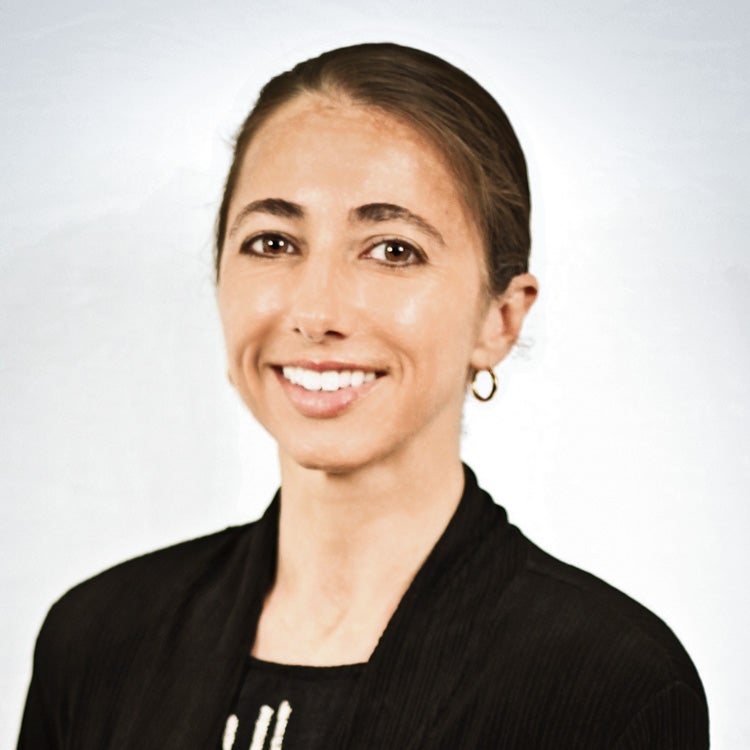
HUM 2937 SUSTAINABLE PUBLIC DISCOURSE
Known alternatively as "ecospeak," "popular science," and "science-based CSR," the phenomenon of moving scientific facts into the public sphere is one that deserves our critical attention. Literally speaking, we will examine academic and real-world genres that advocate for sustainability and analyze the principles underlying their construction and reception. Figuratively speaking, we will consider specific paradigms in written communication that perpetuate, devolve, or recycle themselves over time. We will focus our study in three different spheres--scientific and technical writing, environmental rhetoric and public policy, and daily persuasion and propaganda.
[Requirements Satisfied: Diversity in Western Experience (Y) and Upper Division Writing (UDW).]
Dr. Graban received a double A.B. in English and Religious Studies from Brown University, and a PhD in English from Purdue University, where she specialized in Rhetoric and Composition, and in Linguistics. Prior to FSU, she taught various student populations at two major research universities and a small liberal arts college, engaging in everything from first-year service-learning to advanced graduate education. At FSU, she teaches rhetorical theory and practice, global rhetorics, historical methodologies, and public discourse, and from 2013 to 2020 she also led an interdisciplinary reading group and campus-wide collaboratory in the digital humanities. She often teaches at the intersection of language, class, ethnicity, and memory, in order to equip students with critical and historical literacies that can lead to their more informed civic engagement. She also studies how knowledge about writing and written expression gets made within and across borders, how various disciplines and publics access that knowledge, and how those ways of access become historicized or overlooked among underrepresented subjects and through technologized means. Frequently, she teaches students in and about archives, archival theories, and decolonization of archival practices. To that end, she is currently conducting transnational research in the archives of three southern African nations for a book project that traces the archival positioning of women leaders, activists, and academics of former Commonwealth nations between 1915 and 2015. She also oversees the Linked Women Pedagogues Project.
To learn more about Dr. Graban's research, visit the Department of English's website: https://english.fsu.edu/faculty/tarez-graban.
TYLER McCREARY
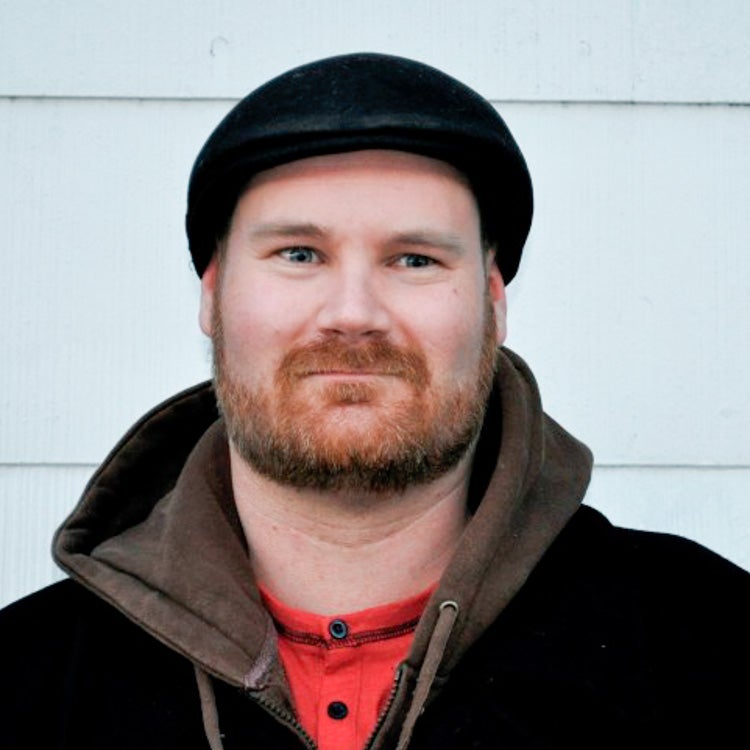
ISS 2937 - ENVIRONMENTAL JUSTICE
This course engages with the history, core concepts, and effects of the environmental justice movement, examining how race and class interact to produce and sustain environmental inequities. Foundationally, it approaches environmental issues from a lens attentive to issues of social justice. Course materials highlight the need to address thorny environmental issues and their long-term consequences including the disproportionate burdening of historically marginalized communities with debilitation, displacement, and death.
Specifically, the course aims to address four aspects of environmental justice. First, it stresses how settler colonialism and racial capitalism have particularly burdened Black and Indigenous peoples with slow-acting, chronic environmental harms in North America. Second, it analyzes how environmental inequities continue to be normalized in law, policy, and bureaucratic government procedures. Third, it elucidates how disasters reproduce and exacerbate pre-existing forms of inequality within and between communities. Finally, it underlines the need to integrate anti-racist analysis into policies addressing the climate crisis, as we seek to reorganize how people live and work to create both a just and sustainable society.
[Requirements Satisfied: Diversity in Western Experience (Y),Social Science and Upper Division Writing (UDW).]
Dr. Tyler McCreary is an assistant professor in the Department of Geography at Florida State University. His research examines how settler colonialism and racial capitalism inflect processes of environmental, labour, and community governance in North America. His research has analyzed themes such as how North American environmental governance processes address Black and Indigenous community concerns; the differential impacts of sociotechnical transitions in North American labour markets; and how urban and regional governance processes relate to the historic marginalization of Indigenous and Black families living in towns and cities.
To learn more about Dr. McCreary, visit his webpage on The Department of Geography's website: https://geography.fsu.edu/people/tyler-mccreary/.
NORA UNDERWOOD
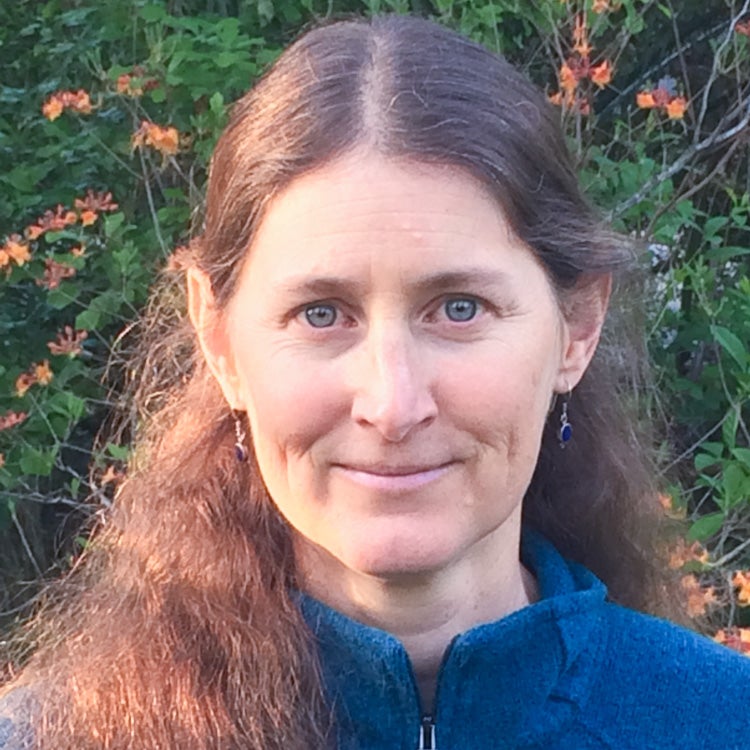
IDS 2470 ECOLOGY OF FOOD
This course explores the basic ecology of agriculture and fisheries and considers how conventional and alternative food-production practices generate and solve ecological problems. We will focus on several major current issues (e.g. genetically modified organisms, pollinator declines, organic agriculture, and fisheries), and learn the science behind the issue and the social forces shaping the problem. Students also learn through discussions and scientific and popular writings, lectures, hands-on and written projects, oral presentations, local speakers and field trips.
[Requirements Satisfied: E-Series, Natural Science, State-Mandated Writing (W).]
Dr. Underwood received her BA in Biology from Vassar College, her PhD in Ecology from Duke University, and was a President’s Postdoctoral Fellow at the University of California, Davis, before joining the FSU Department of Biological Science. She studies how plant and insect populations are controlled in both natural and agricultural settings, how variation in traits among individuals influences their interactions, and how climate change influences the timing of biological events. She and her lab members have research projects in the forests and fields of northern Florida, in Sweden, and in the montane meadows of Colorado, where she works for several months each summer at a high-altitude field station in the Colorado Rocky Mountains. Dr. Underwood became a Professor because she loves research, teaching and thinking about how universities can better serve students and society, so she is very pleased to be associated with the Honors program, as well as chairing the Diversity, Equity and Inclusion Committee for her department. Outside of academic life, Dr. Underwood loves outdoor adventures like mountain climbing and running rivers, as well as biking, gardening, dancing, reading, cooking and hanging out with her husband, daughter, and dog.
To learn more about Dr. Underwood and her research, visit the Department of Biological Science's website: https://www.bio.fsu.edu/faculty.php?faculty-id=nunderwood .
